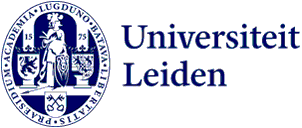Faculty Board responds to your most frequent questions
Following the announcement of revised financial projections at the start of the academic year, the Faculty Board was keen to engage in dialogue with the wider faculty. Through information sessions held at all institutes, at the Faculty Office and in The Hague, we met with many of you to hear your questions and concerns.
A wide range of questions were raised, and we have done our best to respond to them thoroughly. A selection of the most frequent questions is given below. A full overview of the questions and answers can be found on the Perspective 2028 page.

1. How robust are the financial projections for the coming years?
We begin by acknowledging the considerable efforts already made across the faculty, which have led to tangible results. An evaluation shows that the vacancy filter has supported more deliberate decision-making around staff replacement. Over the past two years, this has resulted in a reduction of more than 77 FTE within our faculty. This demonstrates our collective ability to take responsibility for the challenges we face — though those challenges are far from over.
Our financial outlook through to 2030 is based on the data currently available. However, variables such as student intake and potential government cuts to higher education remain unpredictable. In previous years, we have budgeted conservatively in light of such uncertainties. As a result, we now have sufficient reserves to absorb potential deficits in the years ahead.
What our financial position will be in 2030 cannot be predicted exactly. While we hope for a more positive outlook, this remains uncertain. That very uncertainty highlights the urgency of using the time we have ‘bought’ wisely — by working together towards a more agile organisation that can better respond to unforeseen developments.
2. How does the Faculty Board aim to prevent the possibility of another reorganisation in five years?
In the short term, our strategy is to continue with the measures already in place — including adjustments in education, targets for institutes and the Faculty Office, and reductions in staff numbers through natural attrition — and to assess their impact on our reserve position. Based on those findings, we will collectively determine the choices needed for the longer term.
In this context, a taskforce with broad representation from across the faculty is developing a plan to ensure the voice of education — which currently lacks a formal position within our matrix structure — is better represented. More information will follow shortly.
Meanwhile, we are placing greater emphasis on strengthening our income streams. This includes investing in public affairs to raise and reinforce our profile with government and industry, as well as expanding our fundraising efforts.
3. What is expected of institutes and programmes?
Some institutes are in a stronger financial position than others, partly due to the presence of high-value areas of expertise. At the same time, every institute and programme is vital to the faculty and contributes to our distinctive profile. That is why, following consultation with the academic directors, we have decided, if necessary, to deploy all available reserves in support of the faculty as a whole. This will allow us to cover the projected deficits over the next five years. We expect that the faculty units currently operating at a deficit will, where possible, make additional efforts to be in a stronger financial position after 2030.
In the meantime, we are working to enhance organisational agility. The anticipated reduction in staff — as colleagues who retire will generally not be replaced — calls for greater flexibility from all staff. Together, we must find ways to allocate available capacity to areas where shortages arise. One concrete example is the exploration of deploying BAIS tutorial lecturers in other parts of the faculty. At the same time, streamlining educational programmes remains an important tool to ease pressure on staff. Education directors, together with programme chairs, play a key role in this process.
4. What is the situation at the Faculty Office?
The Faculty Office budget includes both staff salaries and charges for services provided by the central organisation. The total Faculty Office budget may not exceed 30% of the faculty’s overall budget. However, we are seeing an increase in service charges, and the Faculty Board — together with other faculties — continues to discuss this with the university.
Current figures indicate a negative budget for the Faculty Office in the coming years. This requires some nuance: the figures do not account for natural staff turnover, such as employees moving on to roles elsewhere. In practice, turnover among support and administrative staff (OBP) is significantly higher than among academic staff (WP). Based on past experience, we therefore expect this budget to return to zero by 2030.
At the same time, the Faculty Office is also critically assessing the need to refill vacant positions. Careful consideration is given to how tasks might be reorganised, ensuring that essential services remain intact and at the same time the organisation becomes more agile and future-ready.
In conclusion
We appreciate that many of you took the opportunity to ask questions. As the Faculty Board, we remain committed to being as open and transparent as possible about all developments — even when we may not yet have definitive answers to every question.
We understand that not all topics you may have wanted to raise were covered during the information sessions. You are still welcome to submit questions via perspective2028@hum.leidenuniv.nl. If you would like to share suggestions or continue the conversation, we are also available during consultation hours. Please register with the Faculty Board Secretariat via secretariaat@hum.leidenuniv.nl; we look forward to speaking with you!
